Coffee Beans Expire: Understanding Shelf Life and Storage Methods
Picture this: you stumble into your kitchen, bleary-eyed and desperate for that first sip of liquid motivation, only to be met with a disappointing aroma that falls flat. Could it be that your once vibrant coffee beans have succumbed to the relentless march of time? The answer lies not just in the contents of your cup but in the very essence of coffee culture itself.
Coffee is one of the most popular beverages in the world. It is enjoyed by millions of people every day and for good reason. Coffee drinkers enjoyed it to start a new day. Coffee’s rich flavour and aroma can be attributed to the coffee beans used to make it. However, have you ever wondered if coffee beans expire? In this article, Aspect Coffee Works will help you explore the topic of their expiration in more detail.
Contents
- 1 Does Coffee Go Bad?
- 2 How Long Do Coffee Beans Last?
- 3 How long do roasted coffee beans last: shelf life & storage?
- 4 Factors Affecting Ground Coffee Bean Expiration Date
- 5 How to Determine if Coffee Beans Expire?
- 6 Storing Coffee Beans for hold up longer
- 7 Impact of Drink Expired Coffee Beans
- 8 How Should You Store Brewed Coffee to Keep It Fresh?
- 9 Frequently Asked Questions
- 10 Conclusion
Does Coffee Go Bad?
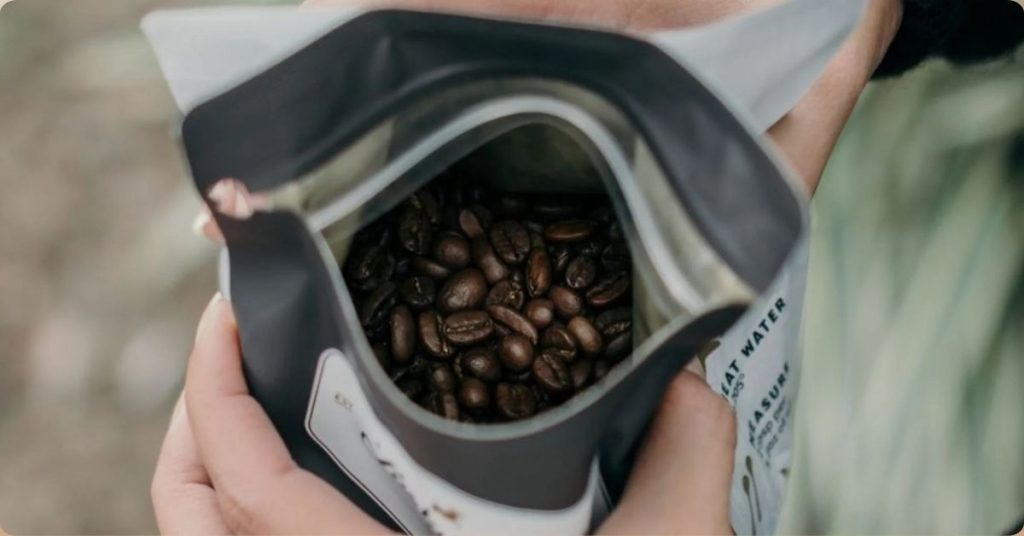
As a coffee lover, I always have some coffee bags at home. I’m sure you’ve wondered if coffee beans go bad. The answer is yes, they do. However, the expiration date of them can vary depending on how they’re stored, the type of coffee, and the roast level.
Coffee beans will become to be spoiled over time, but their validity period depends on several factors. For instance, storing them in a sealable container is crucial to preserving their freshness. The type of coffee and roast level also play a role in determining how long the beans will last.
In general, freshly ground coffee can last for a few weeks to several months. However, once the package is opened, the beans start to lose their flavour and aroma. Ground coffee, on the other hand, has a shorter validity period and can only last for a few days to a week.
One of the main factors that affect the expiration date of them is exposure to air. Oxygen can cause the beans to go stale and lose their flavour and aroma. This is why it’s important to store in a sealable container away from light, heat, and moisture. Therefore, when you drink coffee, you need to pay attention to the best date to use.
Another factor that can affect the shelf life of coffee beans is the roast level. Darker roasts tend to have a longer expiration date than lighter roasts because they contain less moisture. However, darker roasts also tend to lose more flavour and aroma over time.
Using freshly grilled beans to brew your coffee is ideal, as stale coffee beans can negatively impact the taste of your brew. It’s worth noting that while coffee is unlikely to become unsafe for consumption, stale them can result in a less-than-desirable cup of joe. Therefore, it’s best to use beans that come from a reliable source and store them properly to ensure that they are still fresh when you’re ready to brew.
How Long Do Coffee Beans Last?
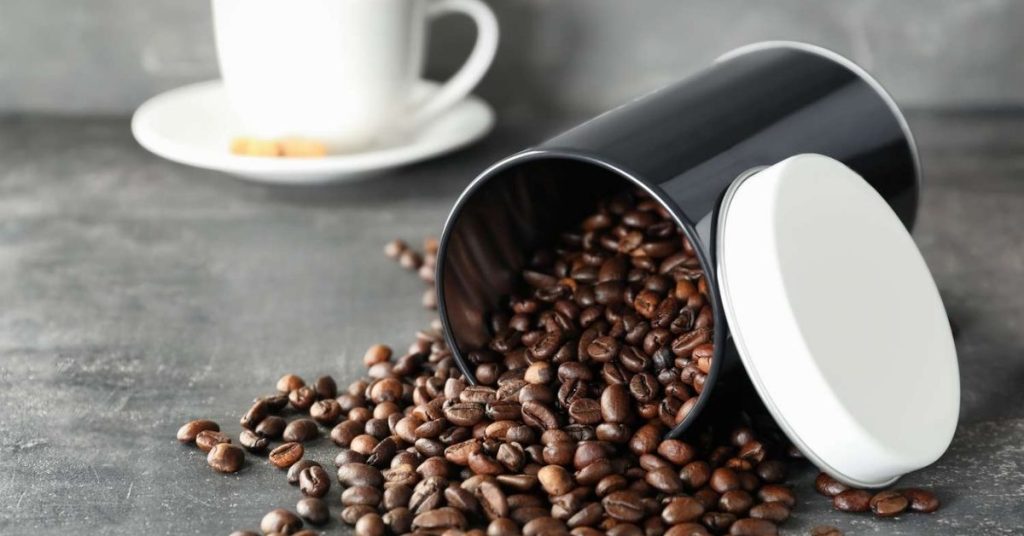
The question of how long coffee lasts really depends on several factors. According to experts, freshly roasted whole coffee beans should be allowed to rest for a few days before brewing to develop their optimal flavour profile. After that, while they are kept in proper storage conditions can retain their freshness for up to 2-3 months.
However, the validity period of the beans varies depending on the type of bean and how it is stored. Unroasted they may last for up to two years, while roasted beans typically have a shorter lifespan of around one to two weeks. Beans must be roasted for longer preservation. Old beans can’t have a good taste.
According to Coffee Yak, opened bags of coffee seed should be ground and consumed within 6 months if stored in a pantry and within 2 years if stored in the freezer. A new and unopened bag of them can technically be consumed within 2-3 years if it’s been stored in the freezer and within 6-9 months if it has been kept in a cool and dry pantry.
In summary, the shelf life of them varies depending on various factors. In order to prolong their time limit, store them in an empty container in a cool and dry place. If you have a large quantity of them, consider freezing them in a vacuum-sealed container However, keep in mind that freezing and thawing the beans can affect their flavour and aroma.
How long do roasted coffee beans last: shelf life & storage?
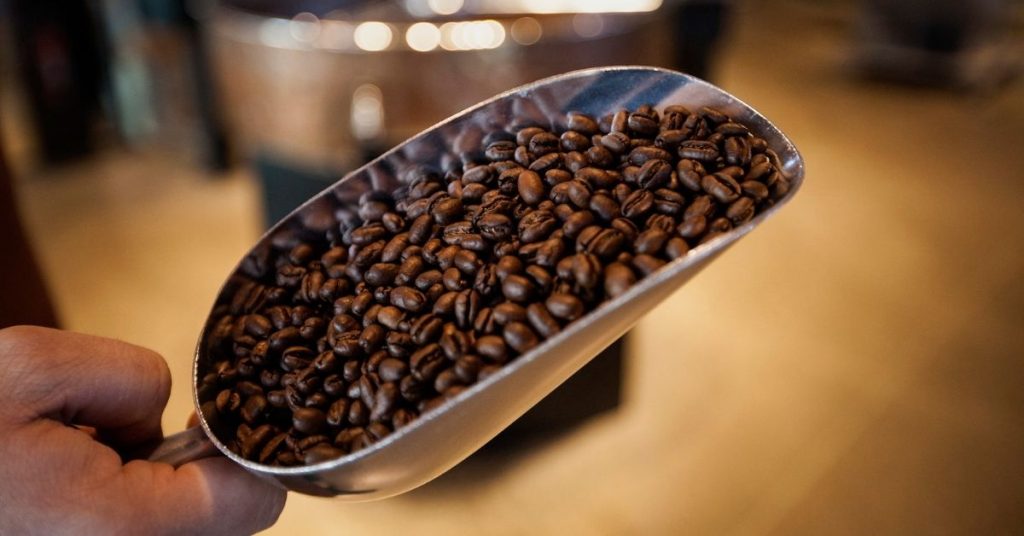
As a coffee lover, I always want to make sure that my coffee seeds are fresh and flavourful. The expiration date of roasting them can vary depending on several factors, such as the storage conditions and the type of beans.
According to Chamberlain Coffee, storing your beans in a closed container will ensure they stay fresh-tasting for at least one month. However, even home storage containers can still let in small amounts of air, so it’s better to use up these beans quickly, and not leave them sitting around for too long!
Whole coffee seed will persist longer than ground coffee, as the roasting process uses heat, which triggers a chemical reaction that causes the natural oils to break down. Roasted whole beans will still eventually spoil, but they will last longer than ground coffee.
According to Primal Survivor, if you want to store the beans for the long term, it’s best to keep them in a sealable container in a cool, dark place. Roasted can last up to 6 months past their best-by date if they are stored properly.
It’s also important to note that the flavour of them will start to degrade over time, even if they haven’t gone bad. If you want to enjoy the best flavour from the beans, it’s best to use them within two weeks of roasting.
In summary, the validity period of roasted coffee beans can vary depending on the storage conditions and the type of beans. It’s best to store them in an emetic container in a cool, dark place to prolong their freshness. If you want to enjoy the best flavour, it’s recommended to use them within two weeks of roasting.
Factors Affecting Ground Coffee Bean Expiration Date
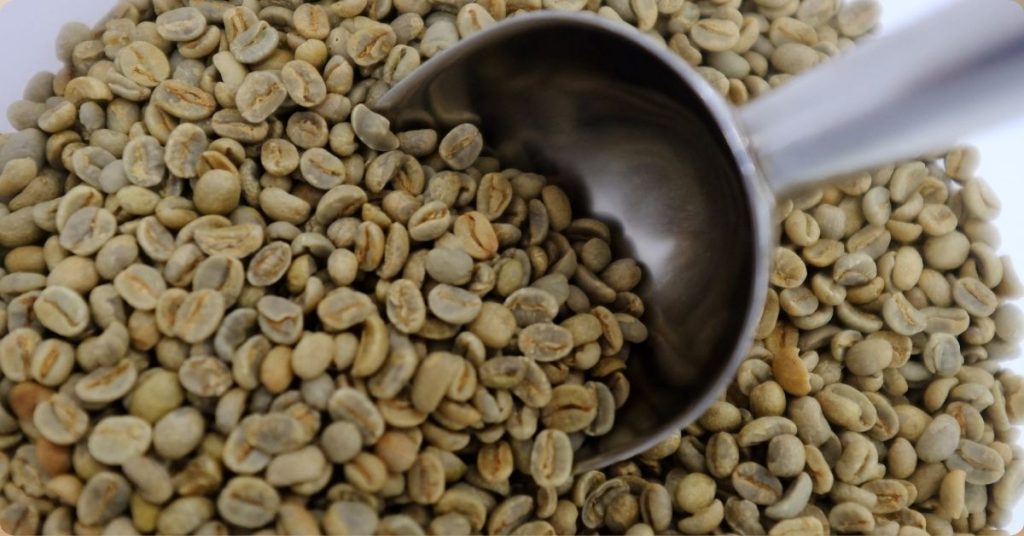
As a coffee lover, I always want to enjoy the freshest cup of coffee possible. However, the beans do have a validity period, and factors such as storage conditions, bean type, and roasting process can affect how long they last. In this section, I will discuss these factors in more detail.
Storage Conditions
The way you store the beans can have a big impact on how long they last. Exposure to air, moisture, heat, and light can all cause coffee seeds to turn stale more quickly. That’s why it’s important to keep your coffee beans as archives in an airtight container in a cool, dry, and dark place. You can also store them in the freezer, but be sure to use an airtight container to prevent moisture from getting in.
Bean Type
Different types of coffee seeds have different validity periods. For example, Robusta beans tend to have a longer validity period than Arabica beans. This is because Robusta beans have a higher caffeine content, which acts as a natural preservative. Additionally, darker roasts tend to hold up longer than lighter roasts because they have less moisture content.
Roasting Process
The roasting process can also affect the validity period of coffee seeds. When they are roasted, oils are released, which can cause the beans to go rancid more quickly. That’s why it’s important to use freshly roasted coffee seed. If you’re buying pre-ground coffee, be sure to check the roast date on the package. Ideally, you want to use coffee seeds within two weeks of the roast date.
In summary, the validity period of them can be affected by a variety of factors, including storage conditions, bean type, and roasting process. By taking these factors into consideration, you can ensure that you’re always enjoying the freshest cup of coffee possible.
How to Determine if Coffee Beans Expire?
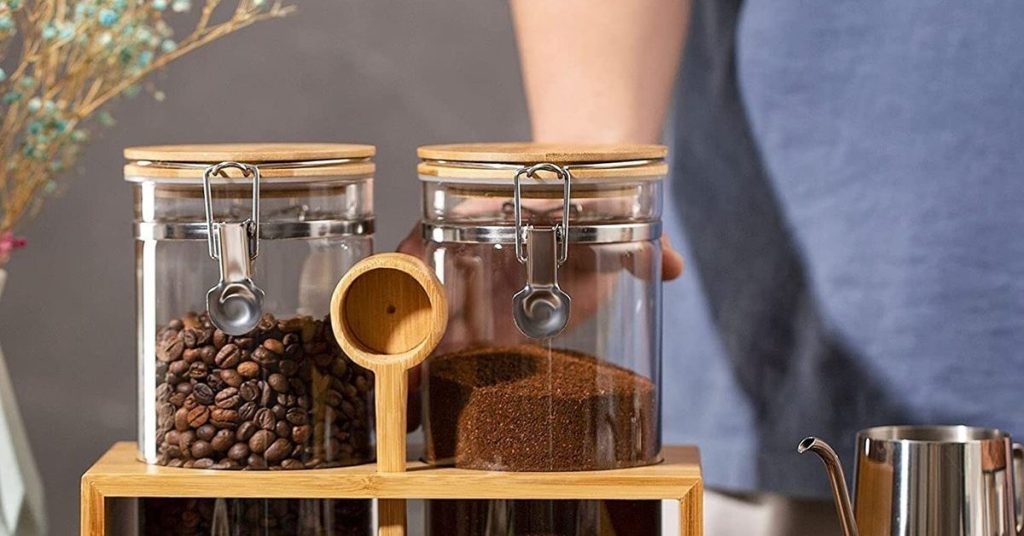
As a coffee lover, it’s important to know when your coffee beans have spoiled. Here are some ways to determine if they are still fresh or if they have been spoiled:
Visual Inspection
The first step in determining if your coffee beans have spoiled is to visually inspect them. Look for any signs of mould, discolouration, or a change in texture. If the beans appear oily or have a shiny surface, it may be a sign that they have gone bad. Additionally, if the beans have a dull appearance or have lost their shine, it could be a sign that they are stale.
Smell Test
The next step is to use your sense of smell to determine if the beans have failed. Fresh they should have a strong, pleasant aroma. If the beans smell musty, mouldy, or like cardboard, it’s a sign that they have been rotten. Additionally, if the beans have a burnt or rancid smell, it could be a sign that they are past their prime.
Taste Test
Finally, you can use a taste test to determine if your coffee seeds have been spoiled. Brew a cup of coffee using the beans and taste it. If the coffee tastes sour, bitter, or has a flat flavour, it’s a sign that the beans have gone bad. Fresh coffee beans should have a smooth, rich flavour with a slight acidity.
In conclusion, it’s important to check your coffee beans regularly to ensure that they are still fresh. By using a visual inspection, smell test, and taste test, you can determine if your beans are still good or if they have been rotten.
Storing Coffee Beans for hold up longer
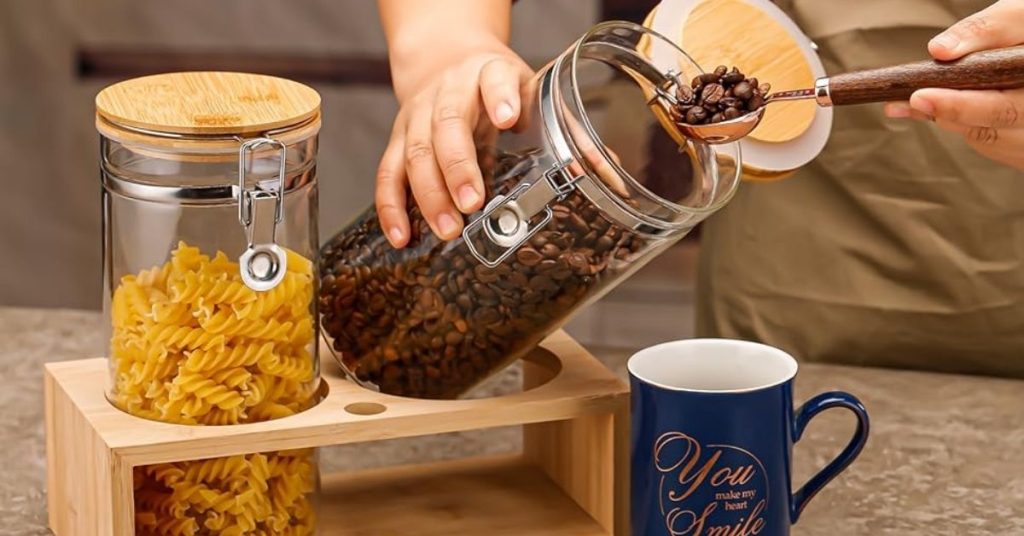
As a coffee enthusiast, I understand the importance of having new coffee seeds. However, it’s not always possible to use all the beans in one go. Therefore, it’s crucial to store the beans properly to maintain their freshness and flavour.
Proper Storage
The key to storing coffee seeds is to keep them away from air, moisture, heat, and light. These factors can cause the beans to go stale quickly. Therefore, it’s essential to store the beans in an emetic container and keep them in a cool, dry, and dark place.
One option is to use a mason jar or a vacuum-sealed container to store the beans. These containers will help keep the beans fresh by preventing air from getting in. If you’re using a mason jar, make sure to keep it away from light as it can cause the beans to lose their flavour.
Another option is to use a coffee storage container with a one-way valve. This valve allows the carbon dioxide to escape while preventing oxygen from getting in. Oxygen is the main culprit behind the beans turning stale.
Buying in Small Batches
Another way to ensure that the coffee beans stay fresh is to buy them in small batches. When you buy them in bulk, you risk exposing them to air and moisture. Therefore, it’s best to buy only what you need for a week or two.
If you’re buying them from a local roaster, ask them to grind the beans for you. This will help you ensure that the beans are fresh and have not been sitting on the shelf for too long. If you’re buying pre-ground coffee, make sure to use it within a week or two.
In summary, storing the beans properly is essential to maintain their freshness and flavour. Keep them in an airtight container, away from air, moisture, heat, and light. Additionally, buying coffee seeds in small batches will help you ensure that they are fresh and have not been sitting on the shelf for too long.
Impact of Drink Expired Coffee Beans
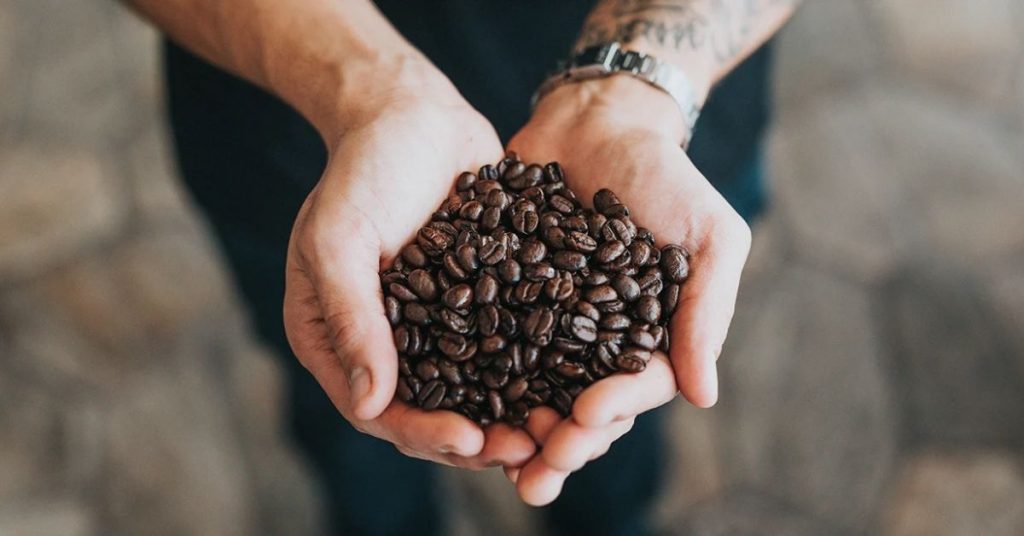
When the beans rot, they lose their flavour and aroma, making the coffee taste stale and unpleasant. However, consuming spoiled them does not pose any significant health risks. In this section, I will discuss the impact of drinking rotten on taste and health.
Effect on Taste
The taste of coffee is a crucial factor for coffee lovers. Spoiled coffee beans can ruin the taste of coffee. Over time, the oils in them evaporate, and the beans become dry. This can lead to a loss of flavour and aroma, resulting in a stale and bland taste. The coffee may also taste sour or bitter due to the presence of acetic acid.
Health Implications
Consuming spoiled coffee beans does not pose any significant health risks. They do not contain harmful bacteria or toxins that can make you sick. However, drinking stale coffee can cause an upset stomach or indigestion, especially if you consume large amounts. It is essential to note that coffee is a natural laxative, and drinking too much coffee can cause diarrheal.
In summary, drinking rotten beans can affect the taste of your coffee, making it stale and unpleasant. However, it does not pose any significant health risks. Drinking a lot of coffee isn’t good for your health is best to use fresh coffee seeds to enjoy the full flavour and aroma of your coffee.
How Should You Store Brewed Coffee to Keep It Fresh?
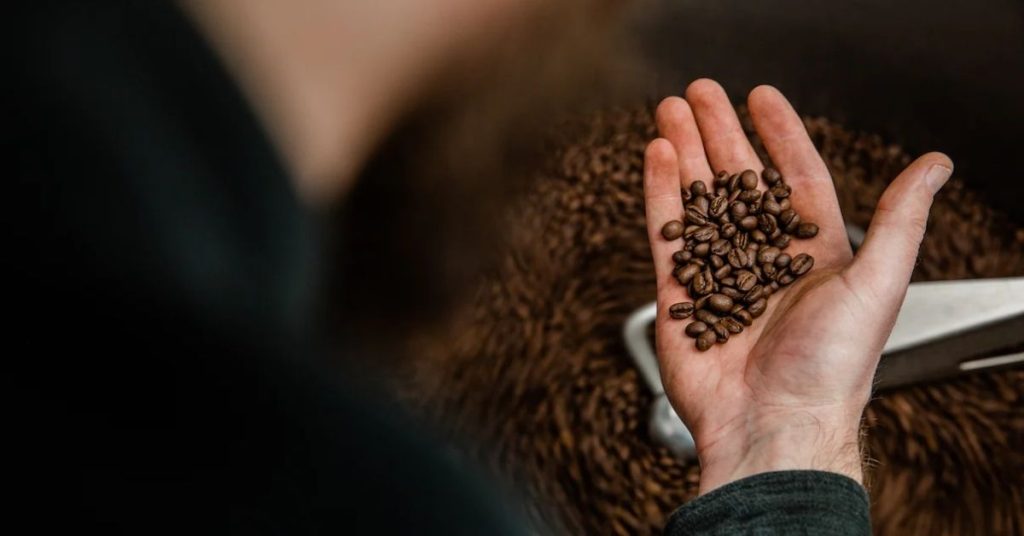
As much as we love freshly brewed coffee, it’s not always possible to drink it all at once. So, how can we store coffee infusion to keep it fresh for as long as possible?
Firstly, it’s important to note that it starts to lose its freshness and flavour as soon as it is made. However, there are a few things you can do to slow down this process and keep your coffee tasting as good as possible:
- Store it in an emetic container: Oxygen is one of the biggest culprits when it comes to spoiling coffee. By storing your brewed coffee in it, you can limit the amount of oxygen it is exposed to and help to keep it fresh for longer.
- Keep it away from light: Light can also have a negative impact on the flavour of your coffee. To prevent this, store your coffee in a dark place, such as a pantry or cupboard.
- Store it at room temperature: Coffee should be stored at room temperature, around 70°F (21°C). Avoid storing it in the fridge or freezer, as this can cause moisture to build up and affect the taste of your coffee.
- Don’t keep it for too long: While storing your coffee correctly can help to keep it fresh for longer, it’s important to remember that it won’t last forever. Ideally, you should consume your coffee within 24 hours of brewing it. After this time, the flavour will start to deteriorate.
In summary, to keep your brewed coffee fresh for as long as possible, store it in an sealable container away from light at room temperature and consume it within 24 hours of brewing.
Frequently Asked Questions
How long Can I freeze coffee beans?
You can freeze them for up to a month without significantly affecting their flavour. However, it’s best to freeze them in an emetic container to prevent moisture and odour from seeping in. When you’re ready to use them, allow the beans to come to room temperature before grinding and brewing.
How long do you protect coffee beans in an airtight container?
The beans can last up to two weeks in a sealable container at room temperature. However, if you want to extend their validity period, store them in the fridge or freezer. Just make sure to use a sealable container to prevent moisture and odour from seeping in.
What is the validity period of opened coffee beans?
Once you open a bag of coffee seeds, they start to lose their flavour and aroma. The shelf life of opened beans depends on the type of bean and how it is stored. Typically, opened them can last up to two weeks in an emetic container at room temperature, but they can remain fresh longer if stored in the fridge or freezer.
How can you tell if coffee beans have gone bad?
If they have been spoiled, they will have a stale or rancid smell. You may also notice a change in colour or texture. To ensure that the beans are fresh, buy them from a reputable source and store them properly in an emetic container in a cool and dry place.
Conclusion
In conclusion, coffee beans do rot, but the validity period depends on various factors such as the type of bean, how it is stored, and the roast date. Unroasted they can last for up to two years, while roasted beans have a shorter validity period of about one to two weeks. However, if they are stored in a sealable container in a cool and dry place, they will persist longer
Opened bags of coffee seeds should be ground and consumed within six months if stored in a pantry and within two years if stored in the freezer. A new and unopened bag of them can technically be consumed within 2-3 years if it’s been stored in the freezer and within 6-9 months if it has been kept in a cool and dry pantry.
It is crucial to store coffee seeds properly to ensure their longevity. Keep your beans in an emetic container away from light, moisture, heat, and strong odours. The roast date is also an important factor to consider. Coffee is best consumed within 2-4 weeks from the roast date. After this period, the flavours start to fade, and the coffee may taste stale.
While the beans are still good to consume after their validity period, the quality of the beans will have diminished, and the flavour will not be as rich. However, bad coffee won’t make you sick.
In summary, to ensure the best quality and flavour of your coffee beans, store them properly in a sealable container away from light, moisture, heat, and strong odours. Check the roast date and consume the beans within 2-4 weeks for the best flavour.







